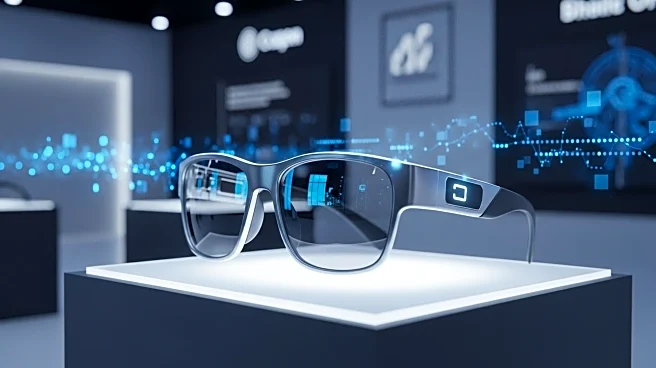What's Happening?
Meta, led by CEO Mark Zuckerberg, has introduced a new line of wearable AI products at the Connect 2025 conference in Menlo Park. The product lineup includes the Meta Ray-Ban Display glasses, the Neural Band bracelet, and the Oakley Meta Vanguard glasses. These products aim to integrate artificial intelligence into everyday wear, enhancing user experience and accessibility. The AI glasses are designed to offer advanced features for athletic activities and daily use, although they come with potential drawbacks such as high costs and privacy concerns.
Why It's Important?
The introduction of AI-integrated wearables by Meta signifies a significant step in the evolution of consumer technology. These products could revolutionize how users interact with technology in their daily lives, offering new levels of convenience and functionality. However, the high cost and privacy issues associated with these devices may limit their accessibility and raise ethical concerns. The development reflects a broader trend in the tech industry towards integrating AI into consumer products, which could have far-reaching implications for privacy, data security, and the digital economy.
What's Next?
As Meta rolls out these AI wearables, the company may face scrutiny from privacy advocates and regulatory bodies concerned about data security and user privacy. The market response will likely influence future developments in AI wearables, with potential adjustments to pricing and features based on consumer feedback. Additionally, competitors in the tech industry may accelerate their own AI product developments to keep pace with Meta's innovations.
Beyond the Headlines
The launch of AI wearables by Meta could lead to a cultural shift in how technology is perceived and used in everyday life. As these devices become more prevalent, there may be increased discussions around the ethical use of AI, particularly concerning data collection and user consent. The integration of AI into fashion and lifestyle products also highlights the growing intersection between technology and personal identity, raising questions about the future of human-computer interaction.








